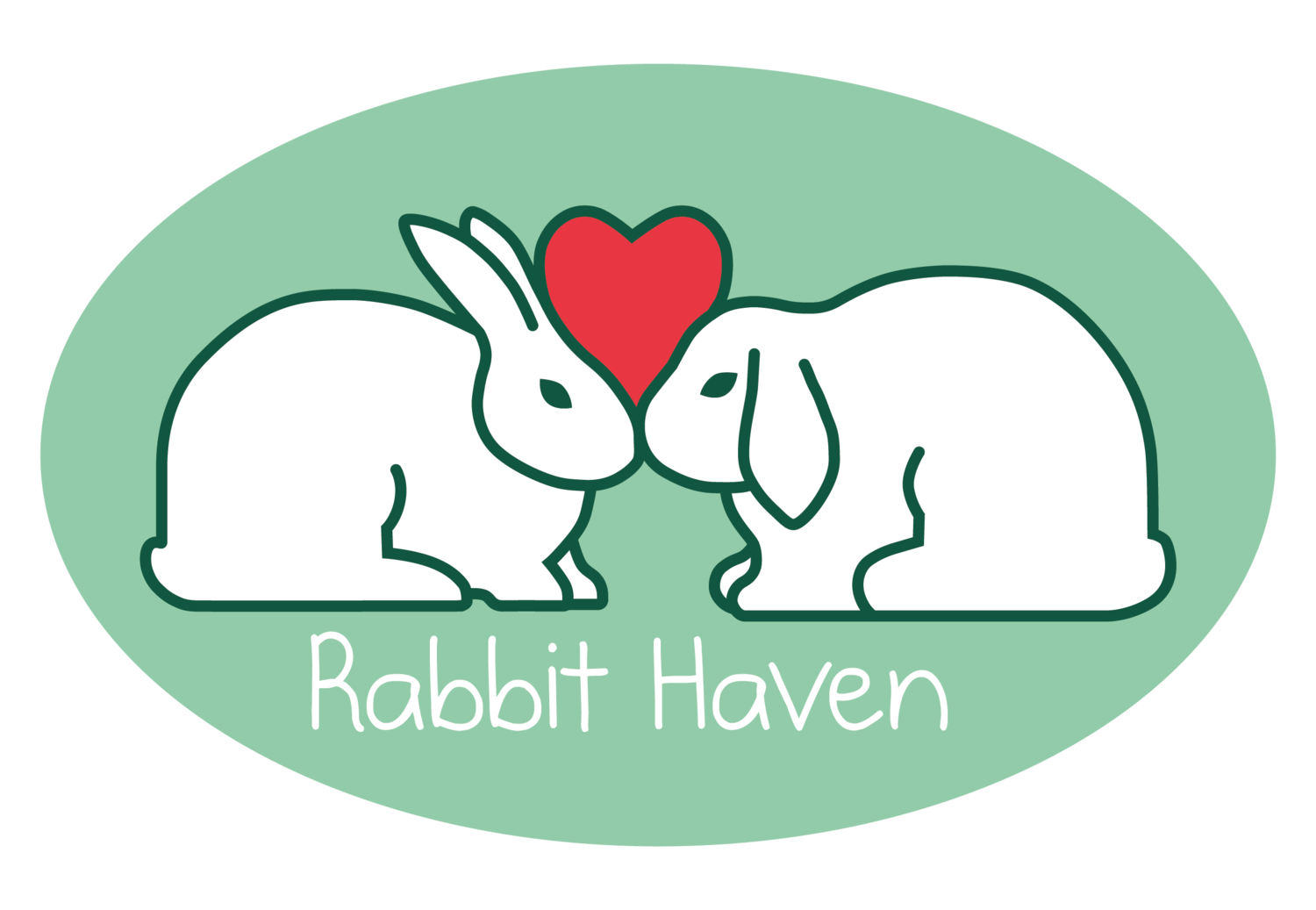Behavior Glossary
Annoyed redecorating: Rabbits are creatures of habit, when you rearrange their things they often are displeased. They get things arranged just right and want them to stay that way.
Begging: Rabbits are worse than dogs about begging. Especially for treats. Avoid indulging them too much. An overweight rabbit is not as healthy as a trim rabbit.
Binkies: These are big, joyful, ridiculous hops that express pure bunny happiness.
Biting: Rabbits do not typically bite for the fun of it. They have been known to bite if frightened or when attempting to defend either themselves or their belongings, including their space.
Bonding and Companionship: Rabbits are much happier when they have a friend to share their life with. They are emotionally and physically healthier because their friend offers companionship and can groom places that are difficult or impossible to reach.
Boxing: Remember: Yes, bunnies can get mad. And a mad bunny can grunt, box, and, in a few circumstances, bite. No matter how badly your bunny behaves, it is never a good idea to try to physically discipline your rabbit.
Butt Twitching: You may notice your bunny's butt twitching occasionally...especially when you are offering some particularly tasty treat, like a bit of banana.
Chinning: Bunnies' chins contains scent glands, which they use to mark their territory, you and all things that they deem to be theirs. Think of it as your bunny going on his or her rounds, marking everything as 'mine, mine, mine....'
Circling your feet: This usually indicates sexual or hormonal behavior. The bunny is in love! Though sometimes bunnies do this when very excited, like when you are about to feed them.
Destructive Behavior: Bored bunnies can get into trouble. Even bunnies who aren't bored sometimes just enjoy doing things they shouldn't. A little preparation, understanding, and a willingness to look at things from a bunny's point of view will keep both you and your bunny happy and trouble-free.
False pregnancy: Usually only unspayed females will build a nest by pulling out belly hair to line a nest. They may even stop eating as truly pregnant rabbits do a day before birth.
Growling: When a bunny feels threatened or annoyed, you may here a growl. Growls tend to be fairly soft (even though your bunny is probably convinced that he or she is as loud and threatening as a lion).
Grunting: Usually angry, watch out or you could get bitten
Honking: Honking is often a sign of pleasure. Some bunnies honk when they are eating, getting treats, getting attention, or snuggling.
Litterbox Training: Yes, you can litter-train your bunny! But, spaying or neutering has to come first. It is almost impossible to litter train an unaltered rabbit.
Playing: Rabbits like to push or toss things around. They may also race madly across the room, jump up on the couch and bound over the top of you. They are just having fun.
Screaming: You never want to hear a bunny scream. A scream indicates severe pain or fear, and is a sign that your bunny needs help, and needs it fast.
Shrill scream: This is a very bad sign. Your bunny is terrified, hurt, or dying.
Shyness: Some rabbits will hide and avoid human contact. Keep faith, this doesn't mean that they will not love you once they get to know you. Some rabbits are more shy than others and need some human coaxing to brave human companionship.
Sniffing: May be annoyed or just talking to you
Spraying: Males that are not neutered will mark female rabbits in this manner. They will mark their territory and you as well. Some females will also spray. Use white vinegar to clean up. See our section on Litter Training.
Stomping: When rabbits are frightened or mad, they can stomp or thump. This can be quite loud. The bunny is often trying to warn you of danger (though what your bunny considers 'dangerous' may often amuse you).
Tellington TTouch: Tellington TTouch is a wonderful method to use on rabbits who are
frightened, grieving, or who just need more bonding time with their owners.
Territorial droppings: Droppings that are not in a pile, but are scattered are signs that this territory belongs to this rabbit. It is a form of marking and will often occur upon entering a new environment. If two rabbits live in the same house there may always be some problem with this.
Tooth grinding: This is how bunnies purr. When You are petting your bunny and he or she starts chomping his or her teeth together, first just a few times, and often then rapidly, you have one happy bunny on your hands! NOTE however that bunnies can also grind their teeth loudly when they are in pain. You will be able to easily tell the difference, as a bunny in pain will behave very differently than a 'purring' bunny.
Training and Tricks: Bunnies are amazingly smart, and you can train them.
Vocalizations: Yes, bunnies do make noises!
